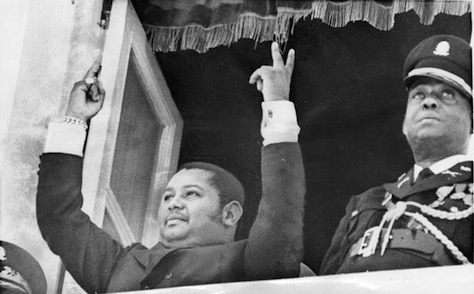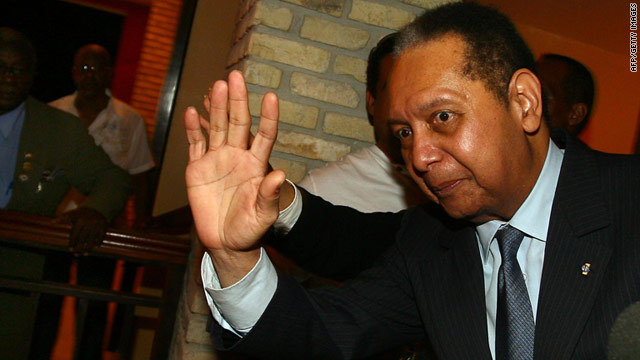Many Haitians believed that bad spirits were behind the devastating January 2010 earthquake that leveled Port-au-Prince.![]()
Those beliefs may have been confirmed almost a year to the day later when, on January 16, 2011, Jean-Claude ‘Baby Doc’ Duvalier returned to Haiti after a quarter-century in exile in France, forced from office in 1986 after his family’s nearly three-decade rule of mismanagement, terror and oppression. His return came in the middle of two rounds of the most recent Haitian presidential election, which Michel Martelly, a Haitian singer, won, however improbably, against government favorite Jude Célestin and former first lady Mirlande Manigat.
The best thing that can be said about Duvalier’s death today, at age 63, is that he won’t be alive to interfere in Haiti’s upcoming 2015 presidential election, which can now be conducted without the shadow of perhaps the most pernicious of Haiti’s many unfortunate governments since its 1804 independence.
Unlike many deposed tyrants, Duvalier had the good fortune to die in his native Haiti.
Though he had his supporters, some of whom are too young to remember the brutality of the Duvalier era and some of whom look back with nostalgia on a time of greater security, Duvalier won’t die with much love from among the Haitian people, who are still living with the repercussions of his brutal rule.
His father, François Duvalier, was elected in 1957 on a populist platform and soon took the title of ‘president for life,’ with the support of an abusive and terrorsome rural militia known as the Tonton Macoute and the backing of a pliant US government more concerned about the anti-communist bona fides of its allies during the Cold War than the massive human rights abuses that ‘Papa Doc’ Duvalier committed.
When Papa Doc died, suddenly, in 1971, Baby Doc took power at the age of 19. He held power for 15 more years before Haitians revolted, at long last, catalyzed by the brutal deaths of three student activists in Gonaïves in 1985 at the hands of Duvalier government forces. After three decades of exiles, murders and persecution, Haitians simply decided they’d had enough. Duvalier, for his part, lived a lush life in France off the proceeds of three decades of the family’s graft and outright theft.
Two days after he returned to Haiti, he appeared in court to face charges that he pilfered millions in funds. Rumors abounded that his rationale for returning to Haiti in the first place was to lay claim to $4 million in frozen Swiss bank account funds.
Though he was ultimately forced to stand before a court in 2013, the case against Duvalier atrophied under Martelly’s government. Though no autocratic, Martelly’s ministers were always sympathetic to Duvalier — and less of his opponent, two-time president Jean-Bertrand Aristide, who also returned to Haiti from South Africa shortly after Duvalier’s return in March 2011 and who may run once again for the presidency in 2015.
In the years between his return to Haiti and his death, Duvalier spent much of his time carousing in nice restaurants and living in a palatial home in the hills above the Haitian capital, far removed from the desperation and poverty that his 15-year rule helped create.
Though his crimes may have gone unpunished by a woefully inadequate justice system in Haiti, the country, which has faced its share of bad spirits since its 1804 slave-led revolution, will wake up tomorrow with at least one less malicious spirit haunting its future.

